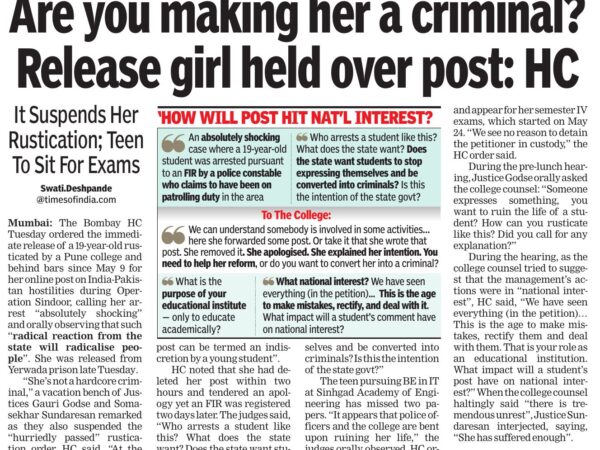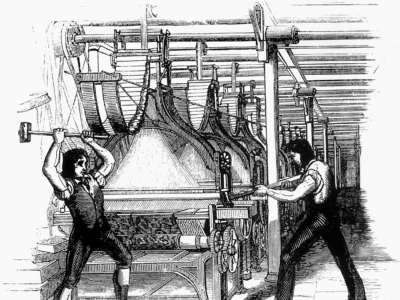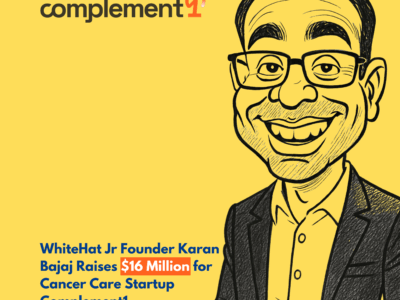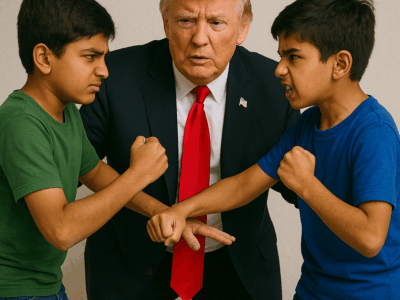
In poker, once all the rounds of betting are over, and the flop, the turn, and the river are on the table, and all the bets are matched and the last players remaining in the fray are holding their cards, as long as there is more than one player still in the game, they must all reveal their cards and actually see who has the better hand and hence, takes the pot.
A poker face, a bluff, a betting strategy, past wins, previous hands, amount of money in the pot, the height of your stack of chips, your attitude, your tone of voice, your expressions, are all useless at that point.
All that matters is what you actually have.
No doubt a strategy built totally on bluffing and faking what one holds too works some time. In fact, a good poker player will most value those wins where they are the only ones left at the end, everyone having folded, and never having to disclose what they actually held. That being said, a great poker player will know that you cannot have that as the only tool in your toolbox. Everyone has a “tell” and sooner or later, you will meet someone who realises you have nothing else. And it it then that you will be caught with your pants down and lose your house.
That’s how it is in life. A constant strategy of bluffing will always cost you once it is known that that is all you do, regardless of what you hold. Like the boy who cried wolf. At the end of the story, you get eaten, or at least your sheep do.
Of course, in poker everyone knows it’s just a game, and another tournament, another game, another contest, another table, another player, another challenge, comes along quickly. Wins and losses are put behind as learnings and one carries on.
Not so in geopolitics. It takes a long time to put behind a loss caused by a leader who knows nothing else but bluff. And at a cost that the population cannot afford, but must bear. Just ask Pakistan.
The problem with Modi Sarkar is that while it thinks it is great at the game, which is 99% strategy, bluffs, feints, faking, pretence, threats, and optics, it misses the point that the game is only up when the last 1% falls into place.
Demonetisation didn’t call it, because the Indian public believed it was aimed at black money and the rich people, while the poor only suffered as a side-effect.
The stupidity of air strikes against Pakistan didn’t call it because the Indian media is blind.
The lynchings of Muslims and Dalits didn’t call it because we are a nation of hateful bigots.
The CAA/NRC muddle didn’t call it because the pandemic intervened.
The crazy schemes of building statues and funding research into cow urine didn’t cause it because Indians are gullible as hell.
The constant horse trading in elected representatives or the transparent graft in electoral bonds, defence procurement, or relief funds don’t call it because Indians just assume their politicians to be corrupt to the point of being buyable, and hence see nothing surprising in it.
The sold out media with the gladiatorial contests and made-up stories doesn’t call it because Indians look at news as an escape from their dreary, boring, and frustrated lives, and as entertainment at the end of a hard working day rather than as an informative and consciousness-raising consumption of factual and researched content.
The mess that is our judicial system, from the appointment of judges to the preparation of the roster that allots cases to them doesn’t cause it because Indians are conditioned to think of courts as the final and infallible authority with divine, unquestionable powers, for no reason but because the courts say so.
The mismanagement of the economy, the swamp that is the banking sector, the dying PSUs, the creaking infrastructure, the constant hate and less than thinly disguised dog whistling, the trampling of human rights, the throttling of dissent, the midnight arrests, the extra-judicial killings, and the extreme hard right turn on a national level (it always existed at the local and regional levels) doesn’t call it because we hate minorities and Dalits, and as long as that doesn’t change, everything else is but a minor irritant.
The total shitfest that is our foreign relations, whether with our neighbours or with other superpowers doesn’t call it because the government tells Indians how India’s stock has risen in the world, and how we are Vishwagurus now, and Indians swallow that, hook, line, and sinker, because it appeals to their biases and wishful thinking in a perfect storm which can literally be used to define “selection bias” to students.
The Covid19 pandemic hasn’t called it (yet) because the Indian mortality numbers don’t seem to be as alarming as initially thought (for no explainable reason, not because of any act by the government).
The job losses, closure of businesses, and the tone-deaf response of the government to the self-created economic disaster-in-the-making will not cause it because, once again, we hate biryani, and beards, and Pakistan.
I could go on…as could anyone with half a brain cell who has been reading the news for the past 6 years.
This government’s idea of governing is optics. It is all about the show. The PR. The photo op. The Twitter riposte. The funny meme. The looks. The style. The font. The formatting. The fashion. The costume. The makeup. The lighting. The steadycam. The money shot. Without the script. Without a story. Sometimes, even without an actor, other than the one and only superstar who is in every frame, in every shot, playing every role.
But you cannot keep bluffing and hope no one will notice and call you on it. Just like poker.
Enter China.
I think China will soon put such a large bet on the table that we would have only two choices: fold, or go all-in.
And when we go all-in, which we will, there is only one step that comes immediately after.
We must put our cards on the table. Face up.
And take our chances.
All bluffing comes to an end at that point.
Question isn’t: What cards do we really hold?
Question is: Do our politicians know what cards we actually hold?

















